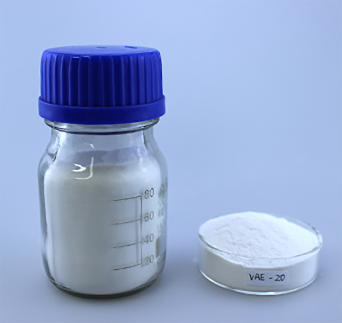
Dec . 20, 2024 21:05 Back to list
hydroxyethyl cellulose uses
The Versatile Uses of Hydroxyethyl Cellulose
Hydroxyethyl cellulose (HEC) is a non-ionic, water-soluble polymer derived from cellulose, a natural polymer that makes up the cell walls of plants. Originally developed in the 1950s, HEC has gained increasing popularity due to its versatile properties and broad range of applications across various industries. This article explores the multifunctional uses of hydroxyethyl cellulose, highlighting its significance in fields like pharmaceuticals, cosmetics, food, and construction.
In the pharmaceutical industry, HEC is predominantly utilized as a thickening and stabilizing agent, enhancing the viscosity of liquid formulations. It plays a critical role in the development of topical gels, ointments, and other semisolid formulations, ensuring an even distribution of active ingredients. HEC's excellent water retention properties make it an ideal excipient in controlled drug delivery systems. Additionally, it helps improve the bioavailability of certain drugs through its ability to form films that can protect active compounds from degradation.
Moreover, HEC is used in the formulation of hydrophilic matrices for oral medications, promoting sustained release of drugs. Its biocompatible nature ensures that HEC is safe for use in various pharmaceutical applications, making it a preferred choice among formulators.
2. Cosmetics and Personal Care Products
The personal care industry highly values HEC for its emulsifying, thickening, and stabilizing properties. It is commonly found in a variety of cosmetic products, including lotions, creams, shampoos, and conditioners. By enhancing the texture, these formulations become more appealing to consumers, offering a luxurious feel during application.
HEC also acts as a rheology modifier, helping to maintain the stability of emulsions and preventing the separation of ingredients over time. Furthermore, its water retention properties can provide moisturizing benefits, making it a popular choice in products aimed at hydrating and protecting the skin.
In addition to its use in formulations, HEC can serve as a film-forming agent, creating a breathable barrier on the skin that helps to lock in moisture while allowing the skin to breathe. This quality is especially beneficial in products designed for sensitive skin.
hydroxyethyl cellulose uses

3. Food Industry
In the food industry, hydroxyethyl cellulose is recognized as a food additive, utilized primarily as a thickener, stabilizer, and emulsifier. It helps improve the texture of various food products, including sauces, dressings, and dairy products. By enhancing the viscosity of these items, HEC can contribute to a more desirable mouthfeel and overall sensory experience.
Moreover, HEC can play a role in low-fat and gluten-free formulations by providing the necessary texture and structure that fat and gluten typically would contribute. Its ability to retain moisture aids in extending the shelf life of several food products, thereby reducing waste and increasing consumer satisfaction.
4. Construction Industry
The construction industry has also adopted hydroxyethyl cellulose for its binding and thickening properties. It is frequently used in mortars, cement, and other construction materials to enhance workability and improve adhesion. When incorporated into dry mix formulations, HEC can enhance the fluidity of cement, allowing for easier application and reducing the risk of segregation during the mixing process.
In tile adhesives, HEC promotes better water retention, allowing for extended open time that enhances the installation process. Its ability to control the viscosity of construction materials results in a more consistent application, leading to higher-quality and longer-lasting results.
Conclusion
Hydroxyethyl cellulose is a remarkable polysaccharide that bridges multiple industries, owing to its unique properties and versatility. From enhancing the effectiveness of medical formulations to improving the texture and stability of personal care products, HEC plays an essential role in innovation across diverse sectors. Its applications in food products and construction materials further emphasize its importance as a multifunctional agent that enhances quality, stability, and consumer experience. As research progresses and new applications emerge, the relevance of hydroxyethyl cellulose is likely to expand, solidifying its position as a vital ingredient in many modern formulations. Whether in a pharmaceutical product, cosmetic, food item, or construction material, HEC continues to demonstrate its invaluable contributions across various fields.
-
Versatile Hpmc Uses in Different Industries
NewsJun.19,2025
-
Redispersible Powder's Role in Enhancing Durability of Construction Products
NewsJun.19,2025
-
Hydroxyethyl Cellulose Applications Driving Green Industrial Processes
NewsJun.19,2025
-
Exploring Different Redispersible Polymer Powder
NewsJun.19,2025
-
Choosing the Right Mortar Bonding Agent
NewsJun.19,2025
-
Applications and Significance of China Hpmc in Modern Industries
NewsJun.19,2025







